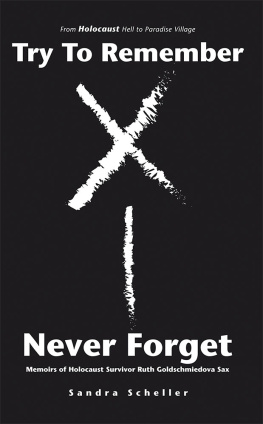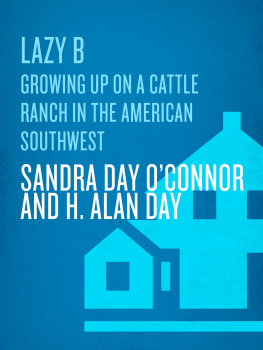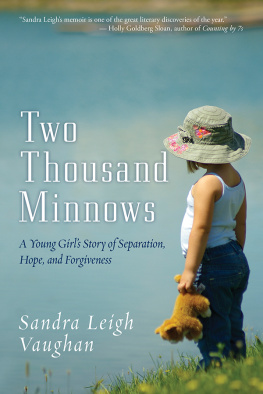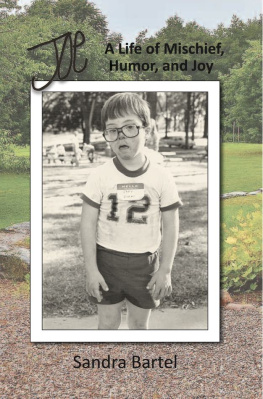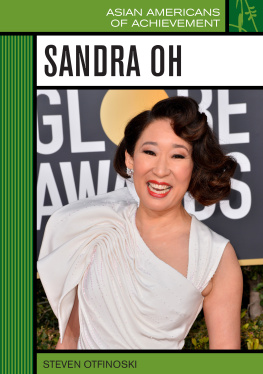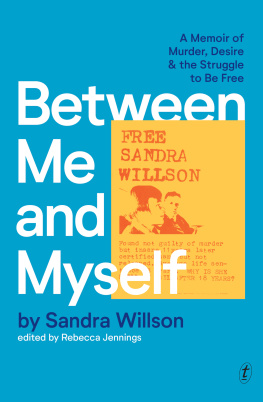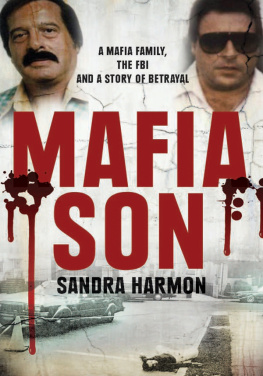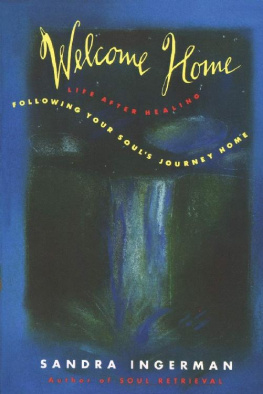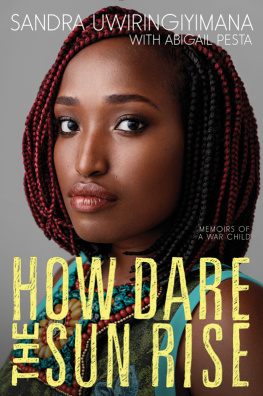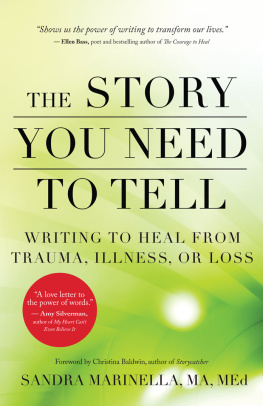For parents everywhere.
For all those who remain behind bars.
For those who will never leave.
And for Pippy.
INTRODUCTION
BY MARTIN BELL OBE
Sandra Gregory has a story to tell. It is the story of an ordeal that would have broken most people and came close to breaking her. Its redeeming features are her courage and resilience, and the enduring love and loyalty of her family. On the face of it, it is a story about a young woman imprisoned for drug trafficking in Thailand. It is also and this is how she herself sees it a story about love and the things people dont say when they should.
In 1993 she was arrested at Bangkok airport, with her companion Robert Lock, about to board a flight to Japan. She was found to be carrying 89 grams of heroin for him. Her pay-off, had they not been intercepted, would have been the 1,000 which would have bought her air ticket back to Britain with plenty to spare. It wasnt the easy money that it seemed. Instead, she was sentenced by the court in Thailand to 25 years in prison. Robert Lock, already known to the police, was acquitted; he was released and had already re-offended while she was still in jail.
The title of Sandra Gregorys book, Forget You Had a Daughter, comes from the letter that she wrote to her parents after her arrest. It is a story told without self-pity or self-justification. What I have done is not excusable, she writes, and above all else I know better than to do what I did. Nor does she reproach the Thai authorities and their system of justice, except to allow herself the wry reflection that their prison sentences are perhaps a touch on the long side.
She served four years in Bangkok before being transferred to British prisons including Holloway and Durham. She found them no better, and in some respects worse, than Lard Yao, the womens section of the notorious Bangkok Hilton. Back in Britain she was spared no brutality, partly as a consequence of the length of her sentence, which led her being classified along with Myra Hindley and Rosemary West as a high security risk. Anyone who thinks that we operate a prison system which, for all its faults, is fundamentally humane and decent, should read her personal account of it and think again. In Durham especially she found herself living in hell and surrounded by evil. And as for Holloway, it was home to the biggest bunch of nutcases, psychos, robbers, thieves, druggies, gang members, whackos and dysfunctional lunatics I had come across.
The irony was that, although detained in British prisons, she was outside the British justice system. She could be released only through a pardon by the King of Thailand. As her ordeal entered its eighth year, the prospect of the pardon still seemed remote. Her parents wrote to me, as to many other MPs, about her plight and the disproportionate length of the sentence. Sympathy for drug-smugglers was not a proper cause; but I am proud to have supported her own MP, the Liberal Democrat Malcolm Bruce, in his campaign for her release. The Kings pardon was eventually granted, following an adjournment debate initiated by Mr Bruce. Contrary to popular belief, MPs are sometimes able to play a part in making good things happen.
The chapter that Sandra Gregory wrote about her release, into a foreign country known as freedom, is one of the most eloquent in the book. She was still unsure of herself, and almost in a state of exploration, when she came to meet us in the House of Commons. The more I learned of what had happened to her, the more I felt that she should write it down, for the benefit of others; and I urged her to do so.
The road from Thailand to Oxford University does not regularly run through Holloway, Durham and Cookham Wood prison in Kent. Sandras acceptance by the University delighted her and helped to restore her confidence. But before going there she took a year out, not only to write the book, but to talk to high school students all over the country about the drug dangers awaiting the unsuspecting, especially young travellers in their gap years, not only in Thailand. I have spoken to some of the kids who listened to her. They could not have found a more credible witness. Without intending to, she had been to hell and back on their behalf. They were deeply moved and impressed.
I believe that Sandra Gregorys book should be required reading everywhere, not just in our schools. Through her experience, and her most eloquent account of it, she surely has saved and will save many others from the same ordeal.
Blessings dont come in harsher disguises than this; but at the end of her story, and perhaps most remarkably of all, she describes what happened to her as actually some kind of privilege. The privilege is ours, that she has shared it with us.
Martin Bell OBE
BOOM! IN THAI, YOU DIE
6th February 1993
To my dearest parents, grandparents and brother,
I am going to ask you the hardest and very last thing from you all. I do not want you to forgive me, what I have done is not excusable and above all else I knew better than to do what I did. I have not been wise and I am asking you all to please forget that you ever had a daughter, granddaughter or sister. I know that this will come as a shock. I am so very sorry for the shame I have brought on you all.
I needed to come home with my pride and this seemed the easiest and quickest way to do it. I have not been well for months now and have been so terribly homesick. I love you all and God, I do miss you, but please never mention my name again. Try to do as I say and act as though you never knew me and throw any photographs of me away. I cannot do five, ten or twenty years like this. You produced a wonderful human being who wanted to change the world, but has instead messed it up.
I am so very, very sorry.
Sandra
Every few minutes the evening trains slip in and out of the darkness in Hualumphong Railway Station in Bangkok and I watch them roll on their tracks, bursting with commuters. Masses of dark faces emerge, like spectres, from the carriages and they stare at me as they amble through the station. Except for the grind of metal and iron the only thing I can hear is the sound of my own heartbeat. I am sticky, wet and very tired.
It is rush hour at Hualumphong and the effort of standing here alone, while waiting for Robert is unbearably painful. My thoughts stray to home, in West Yorkshire, and to my mother and father and grandparents in Scotland, and how I will be seeing them all soon. I run my fingers across my new travel bag. The bag and also my new clothes a white cotton shirt with tiny blue, purple and green flowers on it, a pair of baggy cotton trousers and a pair of green suede court shoes help disguise the way I am feeling. In a way they have turned me into someone else, someone innocent.
I pace up and down the small stretch of platform, flexing my legs, sensing the light bead of perspiration on my upper lip. Does anyone have any idea what I am planning? Can they see it in me? Does every glance I make, searching for Robert, give me away?
Its not really you carrying the drugs, I repeat over and over like a mantra. Just a few more days and you will be home. I am 27 years old and I almost believe it.
Where is Robert? He is late. For an hour I have been standing here at the express train ticket point, where we have arranged to meet. Ruth, his girlfriend, is coming with him and we will all fly to Tokyo together. What will I do if they dont appear? One things for sure: I wont go to the airport by myself.
The light is fading as the last express train pulls away. It is well after 6pm and we should have been on it. A knot the size of a small childs fist appears again in my stomach and I sigh nervously. A small man walks by me, staring. Im sure he knows.


